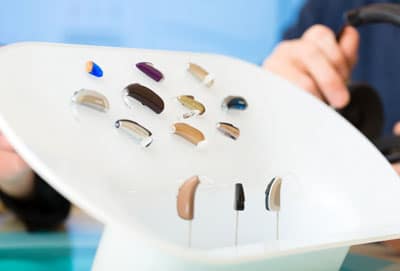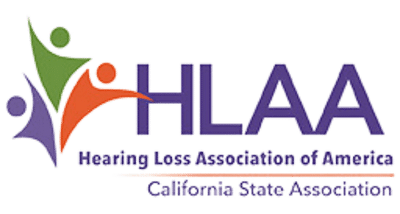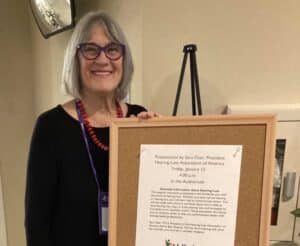
Over-the-Counter (OTC) hearing aids are now available directly to consumers without a prescription. They are designed for adults with mild to moderate hearing loss only.
What’s Your Hearing Health Experience?
Could OTC Hearing Aids Help You?
Purchasing an OTC Hearing Aid?
HLAA advocated for the FDA OTC rule to include consumer protections including:
- Clearly-stated return policy
- Clear package labeling on cellphone connectivity
HLAA Press Release (August 16, 2022)
Over-the-counter (OTC) hearing aids are a new class of products are now available directly to consumers, without a prescription. The FDA released its final rule for the sale of these hearing aids, offering more options to consumers, at potentially lower prices.
OTC hearing aids are designed only for adults with mild to moderate hearing loss, and are expected to be available in retail stores and online in the coming months.
PSAPs (Personal Sound Amplification Products) are amplification devices available now that are intended only for those with normal hearing. The Food and Drug Administration (FDA) prohibits PSAPs from being marketed as hearing aids to people with hearing loss. PSAPS can be marketed to hunters who want to hear prey, or to someone wanting to overhear a conversation. PSAPs should not be confused with OTC devices.
HLAA recognizes there’s no one-size-fits-all treatment for hearing loss, and for many, seeing a trusted hearing health care professional is an important step. People with severe to profound hearing loss will still need the help of audiologists or hearing instrument specialists to ensure their devices work and fit properly.
For people with milder hearing loss, who may be unlikely to see a hearing health care professional, OTC devices could prompt them to get treatment sooner. HLAA hopes this additional class of devices inspires people who may be ignoring their hearing loss, to take the first step to get help.
Even someone using an OTC hearing aid may eventually end up in the care of an audiologist as their condition progresses, or if they need testing, advice or fitting of products, as service models evolve.
Devices are just one piece of the puzzle! Hearing loss is a growing public health crisis that deserves our attention. HLAA advocates for prevention, screening and treatment options, and accessibility for all Americans.
HLAA continues to work toward insurance coverage for hearing aids and auditory rehabilitation, as cost is often a barrier to treatment. We are fighting for the inclusion of hearing screenings in routine health care, and better standards of diagnosis and treatment.
HLAA also fights for adherence to the Americans with Disabilities Act (ADA), the Rehabilitation Act, the Fair Housing Act, Air Carriers Access Act, the Telecommunications Act, the Communication and Video Accessibility Act, and other legislation that protects the civil rights of people hearing loss and other disabilities.
We work to ensure assistive listening systems are available in public buildings, health care, and in the workplace for millions of people with hearing loss.


